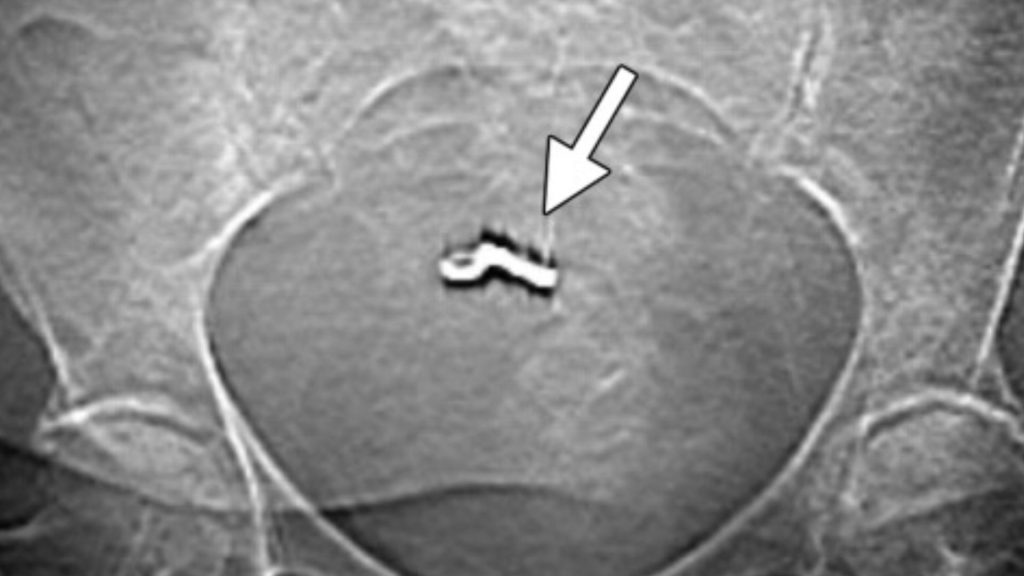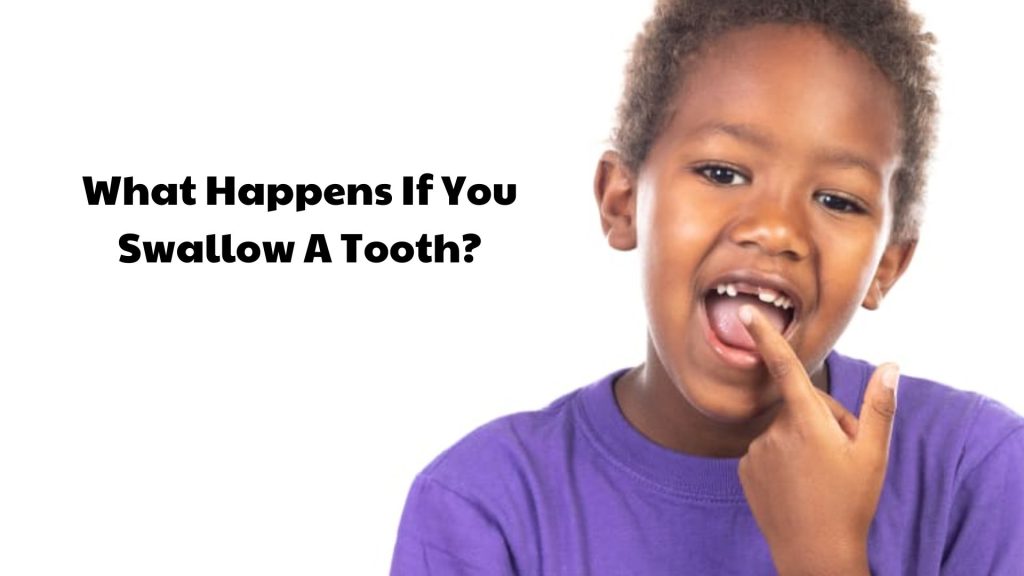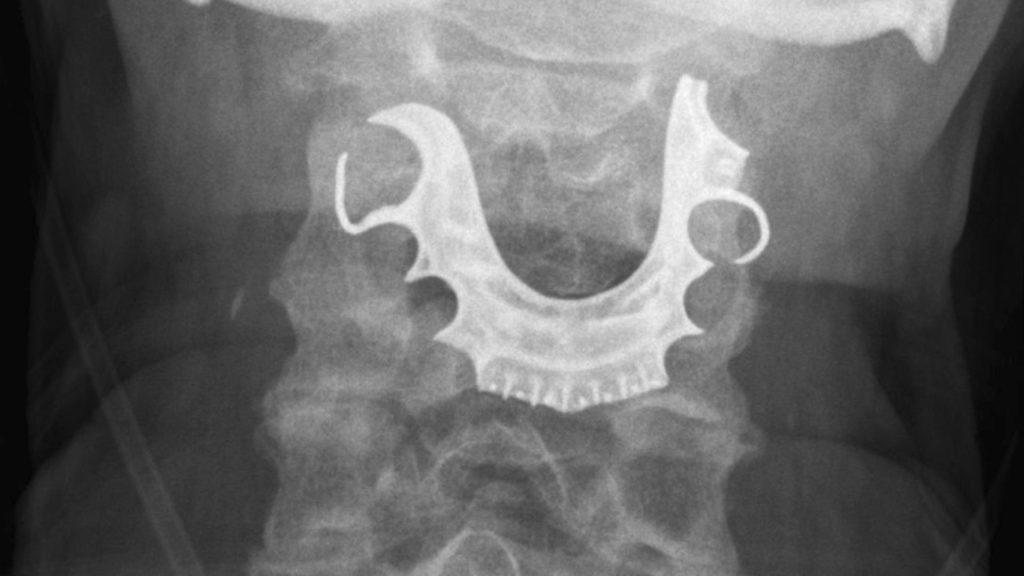What happens if you swallow a tooth? Swallowing a tooth can be alarming but it typically isn’t serious. Teeth are generally small enough to pass through the digestive system without causing harm. The main concern is choking, particularly for young children, if the tooth becomes lodged in the throat or airway. To help you navigate this situation with ease and ensure safety, Spring Orchid Dental provides comprehensive explanation and guidance below!
If You Swallow Your Teeth, Will You Die?

No, swallowing your own tooth is scary but not life-threatening. In this circumstance, the most essential thing is to remain cool and not get too concerned. Many variables influence the exact circumstances and outcome of a case, including the size and form of the tooth, where it was ingested in the digestive system, and the patient’s constitution. Some individuals may have no symptoms after swallowing a tooth, while others may feel stomach discomfort, nausea, or diarrhea.
In Perth, there have been 2 cases where people accidentally swallowed their teeth. Because of ingesting dentures, one patient had a perforated sigmoid colon. In the second example, a person mistakenly ingested 3 fake teeth, causing severe stomach agony for a long period. However, owing to prompt treatment, their health is still secure.
What Happens If You Swallow A Tooth?

According to an NHS, “nearly all swallowed objects will pass through the digestive system without causing any harm, including those with sharp edges.”. Small teeth without sharp edges seldom get caught in the throat. Instead, the teeth will fall to the stomach and be taken out through the toilet. However, an American National and Surgical Journal research found that up to 8% of unintentionally ingested teeth that fall into the belly would damage the lungs and stomach. Even more so when the teeth are big and sharp. Some dangerous things can happen when you swallow your teeth, such as:
- Having trouble breathing and swallowing.
- Neck and chest ache.
- Frequent nausea and vomiting.
- Vomit or stool contains blood.
- Painful stomach.
- Drooling, fever.
- Respiratory failure.
- Esophagus rupture.
More Dangerous: Swallowing Dentures Than Natural Teeth?
A lot of people when faced with the prospect of swallowing either false teeth or genuine teeth, wonder, “Which is more serious?” We shall explain the severity of swallowing a denture compared to genuine teeth and the particular cases involved:
Swallowing Dentures

If the tooth is made of non-toxic materials like acrylic, eating it usually doesn’t cause major health problems. Dentures manufactured of non-toxic materials like acryl may travel through the digestive system without harm. However, dentures might induce swallower anxiety and gastrointestinal issues.
Consume Real Teeth
When presented with the terrible position of having to swallow a natural tooth, many individuals worry about how severe the problem is. We shall go further to better comprehend the gravity of swallowing natural teeth and the concerning issues that might arise in this case:
- Digestion system obstruction
- There is bleeding or injury.
- Infection or inflammation.
- Getting in the way of digestion.
In essence, both dentures and natural teeth may cause health problems, but swallowing natural teeth is riskier and may need surgical intervention to remove the teeth from the digestive system.
What To Do If You Swallow Teeth?
The most essential thing to remember when you mistakenly swallow a tooth and it ends up in your stomach is to remain calm. Normally, eating a tooth does not endanger one’s life:
- Don’t panic right away; that’s the first step. Most of the time, eating a tooth won’t kill you. Go to the toilet and look to see if your teeth are in the poop or not. Because tiny teeth often exit the digestive system.
- After 12 to 14 hours of accidentally eating a tooth and still not seeing it come out, you need to see a dentist. After evaluating your tooth’s location and size on an X-ray, the dentist will propose the safest and most effective therapy.
- In certain situations, surgery may be required to remove a tooth if it is causing major health issues or is linked to a risky place in the stomach or intestines.
However, swallowing a tooth may not necessarily create major issues, so visit a doctor to check safety and receive help if needed.
Take Cautious Not To Swallow Your Teeth

To keep from eating our teeth, there are a few things we need to remember:
First and foremost, maintaining a regular dental care practice is critical. At least twice a day, brush and floss to eradicate plaque. This keeps teeth healthy and prevents tooth loss. Visit your dentist on a regular basis to get your teeth checked and prevent major problems. Dentists can find and treat problems with teeth early before they get worse.
When dining, avoid consuming things that are excessively firm and chew your meal thoroughly. Teeth are protected from scraping and shattering. If you engage in sports where your teeth might be injured, use a dental guard to prevent them from damage or falling out. Keep dentures and other dental equipment clean and use them as directed by your dentist. Handle dentures carefully and avoid leaving them near food or where they might fall.
Thus, frequent dental care is essential to wellness. At Spring Orchid Dental, we wish to encourage dental check-ups. In addition to protecting your teeth and gums, regular dental visits provide numerous additional advantages. Maintaining oral health prevents cavities, gingivitis, and tooth loss. Dental professionals can spot and address these issues early.
FAQs
Would An Enema Remove The Ingested Tooth Via The Digestive Tract?
Without medical guidance, do not do an enema to remove a swallowed tooth via the digestive system. Depending on the kind and size of the enema, it may cause tooth damage. Avoid self-enemas for the following reasons:
- There is a chance of a blockage.
- Side effects on health.
- This does not resolve the problem.
Instead, if you have swallowed a tooth, call your doctor or go to a medical facility straight away for an evaluation and, if necessary, treatment. The doctor can identify and analyze the tooth, as well as provide treatment suggestions, to ensure your safety and wellness.
Is It OK To Swallow A Tooth In Your Sleep?
“Quick burn,” another term for sleep-related swallowing, is not lethal but may cause complications that need medical treatment. This condition is characterized by nocturnal teeth grinding, clenching, or creating loud sounds and is often triggered by stress, anxiety, or stimulants such as coffee or cocaine.
During the course of a night’s sleep. While dental decay seldom kills, it may cause jaw pain, exhaustion, and problems with teeth, gums, and supporting tissues. Do you or a loved one have this problem? See a dentist or behavioral professional. A personalized night guard may protect your gums and teeth from eating each other while you sleep.
How Does Leaving A Dead Tooth Affect You?
If you keep a dead tooth in your mouth without treating it or having it extracted, it may create a slew of issues with your oral and general health. Dead teeth can make your gums swell, give you gingivitis, and hurt. This disorder may cause gum infections, tooth loss, and bad breath if untreated. When a dead tooth is a third developing tooth (wisdom tooth), it might cause swelling and discomfort in the eyelids.
For example, a dead tooth infection that spreads to the system might harm wellness.
So, if you think you have a dead tooth or any other oral problem, you should see a dentist as soon as possible for an evaluation and treatment. To safeguard your oral and general health, your doctor will decide how to treat your tooth.
Can You Die From Swallowing a Tooth?
Swallowing a tooth is typically not life-threatening, as most pass through the digestive system without complications. Nevertheless, if a tooth gets stuck in the throat, it could lead to breathing difficulties or choking, and there is a risk of infection if the tooth isn’t promptly removed. It is crucial to seek medical attention immediately if you accidentally swallow a tooth.





